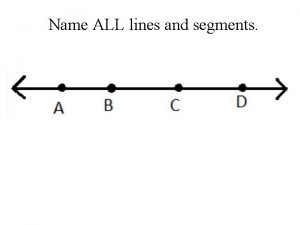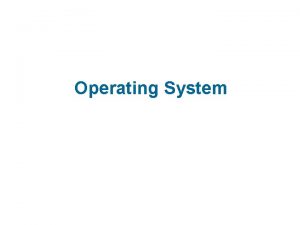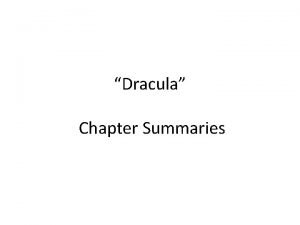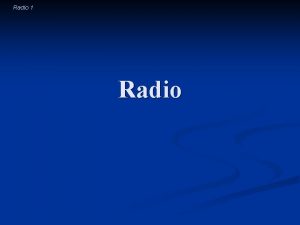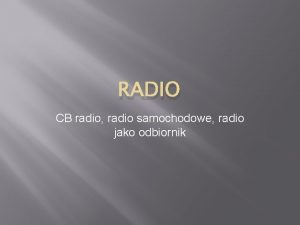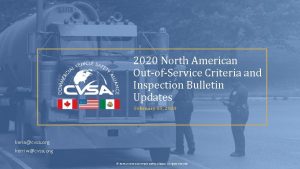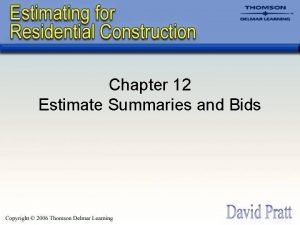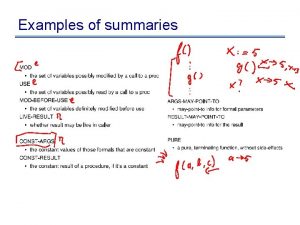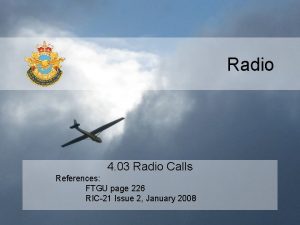Summaries of all calls dispatched outofservice calls radio
















- Slides: 16

Summaries of all calls dispatched, out-of-service calls, radio requests, and other messages, including breakdowns of incidents by types of call or request (e. g. crimes, accidents, services, meals), by hour of day and day of week, should be prepared for use by the records and communication element in scheduled basis, and for other users on a request basis.


b The same general types of report forms should be used for the comprehensive daily, monthly, and annual reports, with appropriate notations or additions. Consolidated daily and monthly reports should be maintained by calendar periods and should use the form presently provided by the organization or comparable substitutes.

b Uniform classification, terminology, and when appropriate, numerical codes for the classification and tabulation of cases, should be required and used in all official correspondence of the department, including the preparation and completion of all case reports, communication center dispatched forms. And police records , and all interagency written communication.

b An index should be prepared and published, alphabetically cross-indexed by the name of the general format of the uniform crime reporting categories.



b In those situations where traffic violations cannot be cited specially by the appropriate code terminology, members of the field force, leaving the assignment of code numbers to technical personnel, should use the actual legal charge and the ordinance or statute number


TIME PERIOD COMPARISON

b. To provide for accurate comparisons of police services needed and provided, periodic evaluation of the level of quality of police service, and intelligent interpretation and prediction of needs in coming weeks and months, and years for comparative purposes.


b. All department comparative analysis of crime, traffic, or service calls or incidents should be based upon the “ 13 -month” system to provide accurate comparisons which is use comparable time and day-to-week bases upon which work loads and deployment problems may be assessed more meaningfully.

b In the thirteen-period reporting-year, each, “reporting month” has four weeks or 28 days, each beginning on a Thursday and ending on a Wednesday, for a total of 13 months in each 52 -week year.

b The use of the “ 13 -month” reporting period probably should be restricted largely to intradepartmental application. All statistical reports completed in cooperation with other agencies should conform to their reporting periods, usually calendar months, or in accordance with other schedules they may prefer.

END. . . THANK YOU…
 Humanistic personality test
Humanistic personality test Conventional radio system
Conventional radio system Name all the lines name all the segments name all the rays
Name all the lines name all the segments name all the rays Define operating system
Define operating system Frankenstein chapter 3 and 4
Frankenstein chapter 3 and 4 The day of the pelican
The day of the pelican Lost horizon summary
Lost horizon summary Summary of chapter 4 lotf
Summary of chapter 4 lotf Wave eric walters
Wave eric walters Chapter 12 dracula summary
Chapter 12 dracula summary The reader 1995
The reader 1995 Chapter summaries of lord of the flies
Chapter summaries of lord of the flies Othello act 1 scene 1 summary
Othello act 1 scene 1 summary Central to developing concept papers is writing definitions
Central to developing concept papers is writing definitions Edgetho beowulf
Edgetho beowulf Crucible act 2 summary
Crucible act 2 summary What do romeo and juliet vow or pledge at the balcony?
What do romeo and juliet vow or pledge at the balcony?


